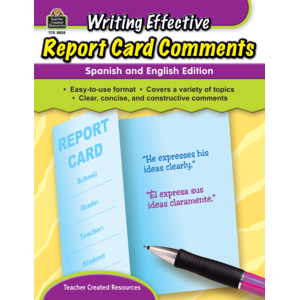Part III: Prior Communication and Preparation
When it comes to conducting smooth parent-teacher conferences, some teachers find it effective to make prior contact before conference time rolls around. At the beginning of the year, before the formal conference time, consider calling the parents. Get off to a good start with your students’ parents. Call and introduce yourself as their child’s teacher. Tell about things that are happening and will be happening in the classroom. Find something good to say about their child. You will not only aid in fostering a positive relationship with the parents, but it will make it easier to work with them during conference time. Too often, teachers do not make an initial contact prior to meeting them for the first time at parent conference time. Prior contact pays off dividends in the long run.
If personally contacting the parents is not a possibility, try giving out a brochure to parents at the beginning of the school year to inform them of your classroom expectations. What should you include in the brochure? Here are several suggestions:
- a list of class rules
- homework requirements
- a time schedule of daily activities
- expectations of times you will be free for telephone calls or conferences
- principal’s name, assistant principal’s name, school telephone number
- Never put your home telephone number in a brochure. You may not want parents (or students) to call at home. Use discretion and only give out the number when you know it will be kept in confidence by the parent.
Inviting Parents
When the time comes for setting up the formal conference period, ask both parents of each child to come. This affords you the opportunity to meet both parents and helps to clarify questions they might have. Remember, your school year will be more successful if you have the parents backing you and believing in you. Most of the time, you will find parents cooperative and willing to help in any way. However, be prepared. You will have some parents who are hostile. Do your best to make them feel comfortable by listening to whatever they want to say. If you get defensive, you will only complicate the issue. Try to offer ways to correct any problem that may be brought into the conference.
Prior to the Conference
Prepare well for each conference so that you are relaxed, well-informed, and ready for the questions that the parents may pose to you during the conference. Keep a sharp pencil on hand. The following tips will help you to be ready.
- Meet with each child’s other teachers prior to the conference. Jot down any concerns they may have. Highlight those concerns that have appeared in more than one area.
- Go over your student notes prior to conferences.
- Make notes of things you would like to cover at conferences.
- Have ready a folder with samples of the student’s work.
- Keep your parent communications cards, your recordkeeping, and your student information book on hand.
- Have your grade book and grading scale readily available if needed. (Caution: Be sure to be cautious enough not to show other student’s grades. When parents are able to see other students’ grades, you are breaking the rules of confidentiality.)
- Go over each report card prior to each conference.
- Know the questions you want to ask that will help you to work with their child. Think carefully over any questions you have that might be personal. You do not want to probe into personal affairs. Also, be sure to ask and listen to the parents’ opinions. And, by all means, never be judgmental, for your goal is to form a positive and productive working relationship.
- Arrange your conference area where there are no physical barriers that would come between you and the parent. It makes for a more comfortable discussion environment. For example, do not sit behind your desk. You want to meet the parents on an equal basis. It is necessary to make them feel comfortable and at ease.
- Make sure to keep accurate notes of conferences. Bring up the notes from the last conference. (“Last time we talked about Johnny being reluctant to do his homework at home. How has that been going?”)
Remember that preparing well before conferences will give you a good sense of direction as to how you would like the conference to go. Neglecting to organize, plan, and prepare properly may have you stumbling through the conference with unclear goals and unproductive results. Make the conference worthwhile and prepare beforehand.
For tips on what to do during the conference, stay tuned to our next post.

